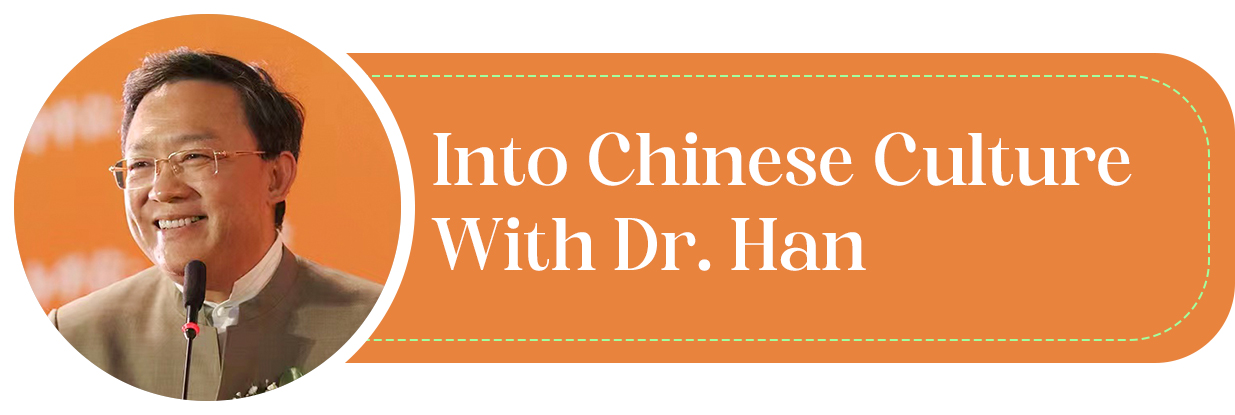The values of goodness and beauty in Chinese civilization (5)
Writer: Han Wangxi | Editor: Zhang Chanwen | From: Shenzhen Daily

5. The way and the arts
Being one with the way is the ultimate prospect of a human being. The Confucian classic “The Analects” notes down visions of moral idealists. For the sake of moral ideals, sacrifices can be made when necessary to realize the benevolence.
Only under the inspiration of sublime moral spirits, one can fully understand Confucius’ saying that “A benevolent person feels at home in benevolence. A wise person practices it because he sees benefits in benevolence,” and “They sought benevolence and attained benevolence, so why should they have felt any bitterness?” This is the status of “wise person without confusions.” Behaving according to the saying, one would not only stop at “without confusions,” but would reach the level of “being optimistic even in difficulties.”
Individual self-cultivation is extremely important if one would like to reach the level of “being optimistic even in difficulties.” Confucius gave a vivid example to this level; he said, “What a worthy man was Yan Hui! Living in a narrow alley, subsisting on a basket of grain and gourd full of water — other people could not have born such hardship, yet it never spoiled Hui’s joy.”
Chinese civilization emphasizes individual moral self-consciousness, in which sincerity and a logic of “better oneself, improve familial harmony, wisely rule a country, and ultimately bring peace to the world” as demonstrated by the idea of “Daxue” (“Great Learning”) are emphasized until one’s sacrifice for the benevolence. Also, one’s proactiveness to do good is highlighted in the relationships between individuals and collections of individuals and the society.
“Exploration of arts,” as said by Confucius, is an extension of ethical lifestyle. Confucius fully asserted moral reasons which can be embodied by his thoughts on benevolence and the rites. However, he also attached the importance of music. He believed that “Shijing” (“The Classic of Poetry”) serves to inspire us. The rites help us find our positions and music helps us achieve perfection.
Confucius finished ample research regarding music, including discussing the attractiveness of music through space and time. “There is much we can know about music performance. It begins with vigorous playing. And when it goes into full swing, the sound is pure and harmonious, the notes are bright and distinct, and the passages are fluent and continuous until the music reaches its end.”
When Confucius was in the State of Qi, he heard Shao music. For three months, he even did not notice the taste of meat. He said, “I never imagined that music could be so sublime.” Confucius also underlined the moral function of music, and he emphasised that the “Shao” represents the best of classical, properly formed music, while even if the “Wu” represents less proper music, he suggested to “listen only to the ‘Shao’ and the ‘Wu.’ Prohibit the tunes of the Zheng state, and keep glib people at a distance — for the tunes of Zheng are licentious, and glib people are dangerous.” Confucius’ requirement made an equation between a life of arts and a life of morality.
In “A Letter to Mei Yaochen,” Su Shi, a poet and politician in the Song Dynasty (960-1279), delicately analyzed Confucius’ valiant personality through his striving for the perfection of arts. Su cited a story from “Shi Jing,” which said that Confucius once experienced obstacles at the State of Chen and the State of Cai, however music from both countries never stopped. Students including Yan Yuan and Zhong You started conversations with Confucius. Confucius first asked “I am not rhinos, not tigers, but run away in the wilderness. Is it true that the way I promote is not correct? Why did I end up like this?” Yan then responded “The way you promote is so sublime that no one can accept it. Even so, why worry about morality being not accepted? This denial will further prove that you are a superior man.”
Through his life stages, Confucius elaborated some key moments during one’s reaching to the sincerity, goodness and beauty. He said, “At 15, I set my mind upon learning; at 30, I took my place in society; at 40, I became free of doubts; at 50, I understood Heaven’s Mandate; at 60, my ears were attuned; and at 70, I could follow my heart’s desires without overstepping the bounds of propriety.” Confucius conclusively arrived at the supreme realms of both morality and arts after experiencing those phases, and these two realms have merged without obstructions, symbolizing the paramount goodness and beauty, while signifying the unity of sincerity, goodness and beauty.
(The author is a cultural scholar.)
(Translated by Chen Siqi)